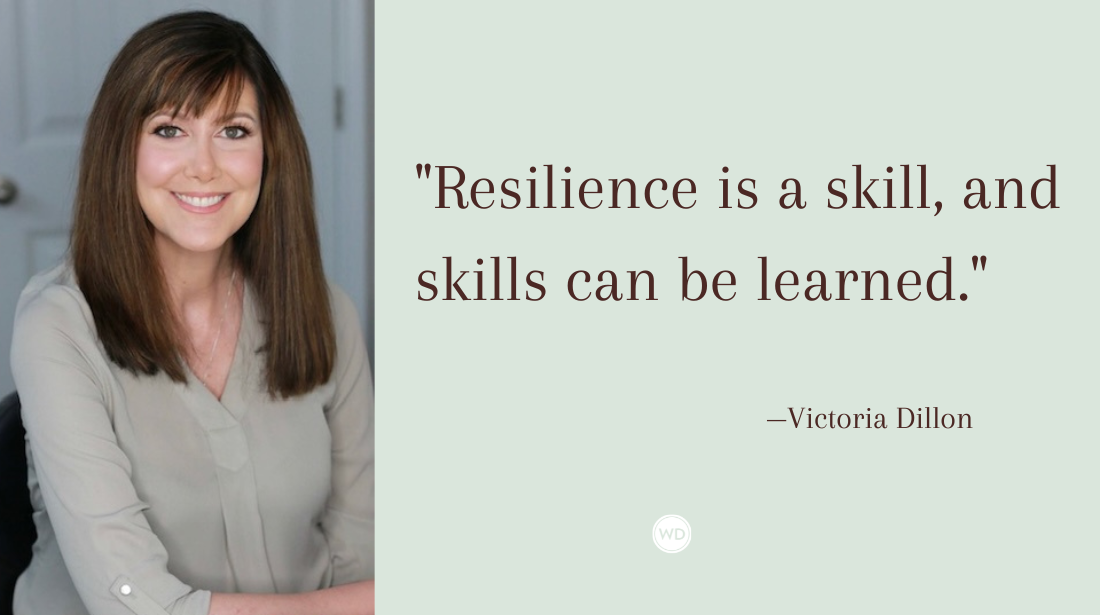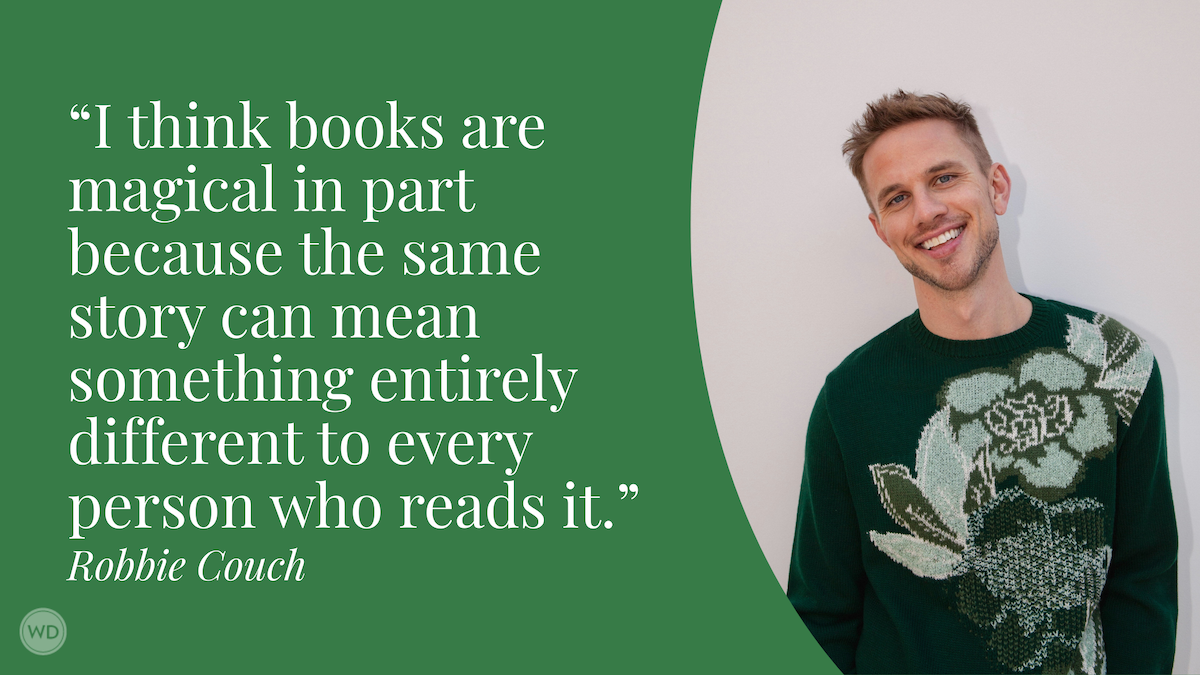A Master Class in Failure (To Find Writing Success)
Failure is often a step in finding success but navigating the treacherous terrain of rejection can be burdensome. Here, international bestselling author Marcia DeSanctis shares a master class in coming back from failure.
The day after I dropped my youngest child off at college, I got another rejection. This was not my average lightning round, the kind I tried when I was just getting started on my second career as a writer, whereby I sent queries or finished stories to dozens of editors. This was from my actual agent, the lovely woman who previously tried (unsuccessfully) to sell my nonfiction book proposal. I had sent her my novel, which once had a different agent, who had tried (also unsuccessfully) to sell it a few years earlier. Among my latest agent’s comments: I regret to say I won’t be taking this project on. The novel overall was too slow-moving and infused with negativity. Et cetera.
As with each elimination episode I’ve experienced as a writer, and there have been countless, I felt scalded by the news. It struck me as a poignant irony that the reality of my suddenly grown children occurred at the exact moment my literary dreams stalled again. In the airless gloom of my St. Louis hotel room, I churned these two events around in my mind’s tumbler, wondering if there was a true symbiosis, or just coincidence.
One sting exacerbated the other, and sensations of finality and doom rolled back and forth. If in the past, I blamed my professional failures on domestic demands of mother and wifehood, on carpooling, track meets, my need for an efficient and clean household, college visits, nightly family supper, and my woeful lack of discipline for the remaining two hours of my day, what excuse would I use going forward, now that I had nothing but time spread out before me? I was 56 years old. Time was something I could not afford to waste.
Against all logic, I awoke the next morning hopeful again. Failure, I have discovered, gets me out of bed. Compounded failures have forced me—allowed me—to innovate and swerve. Failure has helped me finesse my career in ways that have been, in the end, satisfying. Failure has opened doors and pushed me to ask the essential writer’s question: Is my voice worth being heard? If the answer is no, failure has horrifying causticity, and reduces your voice (and in your mind, you) to insignificance. If the answer is yes, failure—though it undeniably sucks—can also be deeply inspiring. I’m not sure the same can be said about success.
The failed writer is one of the world’s most hackneyed archetypes. From Sunset Boulevard to Barton Fink to Sideways, Hollywood is obsessed with portraits of pathetic literary irrelevance. Rationally, however, it’s hard to pity someone who is able to wrangle thoughts all day in a quiet room, and not have to show up for a shift at the plant, even if critical or commercial success eludes them.
I would estimate that “prepare for failure” is among the top five bullet points in the writer’s job description—the job I fully and accountably chose halfway through my life. Imagine if surgeons, dam engineers, or helicopter pilots had to integrate failure into their work? Soft-handed writers are courageous creatures indeed. With the exception of the divinely talented, fortunate few, it is difficult to circumvent the disappointments and many hard truths that arrive with regularity in the professional life of a writer.
My rejections are legion. Story pitches to any editor with an email. Spec submissions of essays, short stories, travelogues. Submittable, my own personal museum of shame. I’ve had three books, three agents, and ultimately three giant metaphoric coffins in which to bury my literary ambitions in the saddest of resting places: The graveyard of almosts.
The first project was a novel that I wrote over five years. I went to Staples and printed out 30 copies to send to agents. I stacked the bound manuscripts in boxes, and a salesperson loaded a hand truck and helped hoist them into the back of my Jeep. It was a wistful moment as I imagined the rapture my submission would induce when the recipients lapped up my prose.
After many passes, someone responded. She loved it. Sadly, the publishing world didn’t share her ardor. Eight months later, I pulled the book and coaxed a list of responses from her. My face flushed and my hands grew sweaty. My novel was too quiet, too static, the main character too perfect or unlikeable or spoiled or feeble or bland. I placed it somewhere I’d never have to face it again: On a Zip drive stuffed among the binder clips and dirty rulers in my pencil drawer. “Entitled” is a label of shame I am quick to stamp onto others, and I loathed this quality I discovered in myself. As if I were deserving. As if I should be singled out for specialness. As if I had a right to expect anything at all.
Back up on the horse, I worked up a proposal for a memoir, about an episode that happened when I went to graduate school in international relations. It derived from an article I had submitted cold to Vogue, who published it—my first major magazine story. The essay brought me some attention, infamy—and ultimately, a new professional direction. One of my writer friends introduced me to her agent, and I adored her. She was supportive and kind, but alas, unable to sell that book.
Through it all, I wrote and wrote and wrote. I hustled my wares and, when need be, I groveled. I followed up. I told myself, So what if they think I’m a pest? With patience and diligence, I also had some success—editors I had known one place migrated to another, and I pursued them. I got magazine work, inclusions in anthologies, even a few writing awards. A publisher in California offered me a delicious assignment to write a book about France, and it became a bestseller. A collection of vignettes about 100 places in France, the book was deeply personal, and as I wrote it, I felt a powerful connection to my subject and my work.
And yet, I still felt defined by my literary defeats. I had a book, but not the book, the one that came from me, the one in which I could say so much of what I needed to say. I still had the piercing sensation that I lacked legitimacy. But I also wondered why the work I was doing—the work that made me a professional writer, the victories that were still victories—was still never enough. What, for a writer, even is enough? And on whose shining social media yardstick should we be measuring ourselves?
IndieBound | Bookshop | Amazon
[WD uses affiliate links.]
It would be a few years before I would try a third time. My work had veered into the realm of travel writing, some based in memoir, some fresh assignments. I began to publish magazine stories and essays for smaller publications and found a warm community of writers. During one visit to Arizona where my father grew up, I came up with a new book idea. I worked up a proposal, wrote some sample chapters, and enlisted an enthusiastic new agent. Into the ether it went, and onto the pavement it landed with a clunk, 50 some-odd times. Then, I dug up my novel from the drawer, and hoped she might revive it. But, as I learned that morning in St. Louis, she didn’t. I was full of self-recriminations. I was talentless and meritless. I had blown another chance with another agent. I was a loser.
And I refused to leave the game.
This is what we do. We take our hits, and if resentment does not curdle us, we strengthen our humility, pack up, and move on down the road with head held high.
There are two ways to look at literary setbacks. The first is to slam into the concrete blockade one last time and call it quits. This option is permanent and takes as a given the old maxim that when you have stopped trying, you have failed. The second option is to turn back, gas up, reconsider the approach, and try another switchback toward fulfillment, professional respect or recognition, and hope. This is the optimist (or the delusionist’s) path, the domain of the truly and providentially strong. It takes stamina and grit to withstand the anguish and degradation of rejection. But also, it takes some conviction: That your writing matters, and that one day, somehow, you will find your reader, and your reader will find you.
Although I’d never call myself self-assured, I have spent the last decade shoring up some belief in my abilities. Luck is a crafty thing, but it is not always random. And sometimes, luck is meted out to those who think of other ways to fashion a career, as I have done. For me, luck has come from opportunities I have largely forged out of failure.
A few years ago, I finished a third book and was not sure I could stomach another search for an agent, especially at the beginning of the pandemic. I rehashed all my mistakes, reliving regrets about the countless things I have not done right, or wisely. I put that book on a burner to simmer. Then, I wrote a proposal, whereby I would sift through my body of work—about 140 essays—write a few more, and make a collection. I wanted the book to be about the cycle of leaving and coming home, a theme that runs through all of my travel writing. I sent it directly to the same independent publisher that published my France book, and had anthologized several of my essays. They gave me a book contract, which I negotiated myself.
It’s impossible to calculate the amount of failure (and re-editing and re-writing) that is in this book of 37 essays. One was rejected 17 times before it was published; another that won multiple awards was rejected 15 times before being accepted by a university’s online literary journal. I recall the endorphin rush when I finally saw that story out in the world. It is important to remember that a small splash is still a splash.
Successful writers (and motivational speakers in every field) often speak lovingly about failure as a galvanizing force, the necessary kindle that ignites the drive that fuels ambition. Such eloquence can be hard on the ears to someone smarting from compounded failures. But time has shown me that I agree with that assessment. When I’m deep in a well of self-pity, projecting futility, negativity, and pointlessness, I always do the same exercise. I open up my files and break open an essay I’ve been struggling with. I roll up my sleeves, reconnect with the words I have pulled from the air and lassoed into sentences. I go to work. When I keep going, it means I stubbornly keep trying, come what may.
Recently, a writing acquaintance was despondent about a fresh batch of disappointment. She asked me, “I don’t know, am I a failure?”
“No,” I said. “You’re a writer.”
Marcia DeSanctis is the author of the international bestseller, 100 Places in France Every Woman Should Go. She spent two decades as a news producer for ABC, NBC and CBS News 60 Minutes. She has written for Travel + Leisure, Vogue, Town & Country, Air Mail, Departures, BBC Travel, Lit Hub, Marie Claire, Off Assignment, Departures, Tin House, O the Oprah Magazine, Roads & Kingdoms, The New York Times, and The New York Times Magazine, among many other publications. She has won five Lowell Thomas Awards for excellence in travel journalism, including one for Travel Journalist of the Year, as well as the Grand Prize Solas Award in 2021 for Travel Story of the Year. She holds a degree from Princeton University in Slavic Languages and Literature and a Masters in Foreign Policy from the Fletcher School of Law and Diplomacy. She lived and worked for several years in Paris, and resides in northwest Connecticut.









